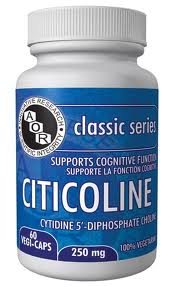Posts Tagged ‘neuroprotection’
On the limits of Citicoline and the need for comprehensive brain injury rehabilitation
Citicoline does not improve functional, cognitive status in patients with traumatic brain injury (Outcome Magazine): “Although approved for use for treating traumatic brain injury (TBI) in nearly 60 countries, use of citicoline in a randomized trial that included more than 1,200 participants with TBI did not result in improvement in functional and cognitive status, according…
Read MoreBrain Fitness/ Training Report Finds Market Growth, Potential, and Confusion
After many many months of mental stimulation, physical exercise and the certain need for stress management… we have just announced the release of the The State of the Brain Fitness Software Market 2009 report, our second annual comprehensive market analysis of the US market for computerized cognitive assessment and training tools. In this report we…
Read MoreEducation builds Cognitive Reserve for Alzheimers Disease Protection
Given the growing media coverage mentioning the terms Cognitive Reserve and Brain Reserve, you may be asking yourself, “What exactly is my Cognitive (or Brain) Reserve?” The cognitive reserve hypothesis, tested in multiple studies, states that individuals with more cognitive reserve can experience more Alzheimer’s disease pathology in the brain (more plaques and tangles) without…
Read MoreBilingual brains stay sharp longer
In study, Bilingual brains stay sharp longer We have seen a number of studies on why and how speaking more than one language may help build a Cognitive Reserve (interview with Yaakov Stern) that protects us against cognitive decline. This article does a good job at explaining what may be going on (bold added by me):…
Read More
